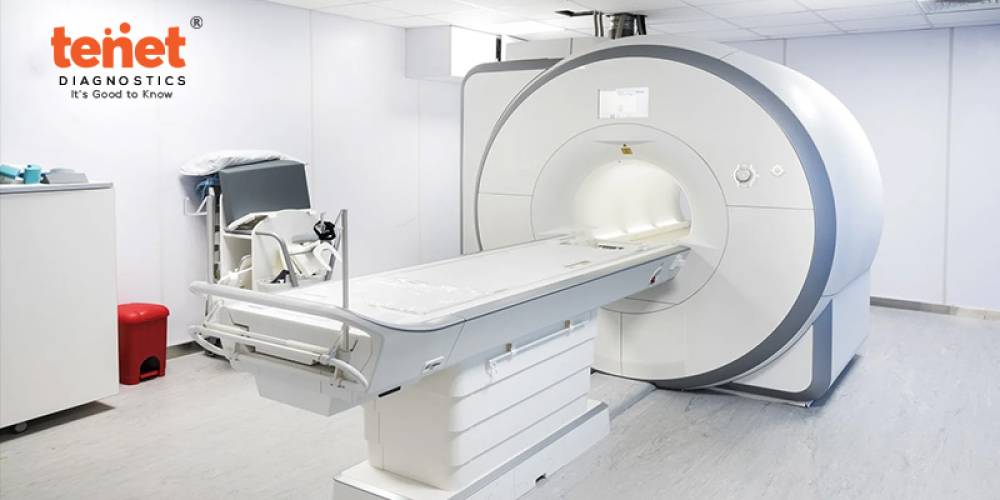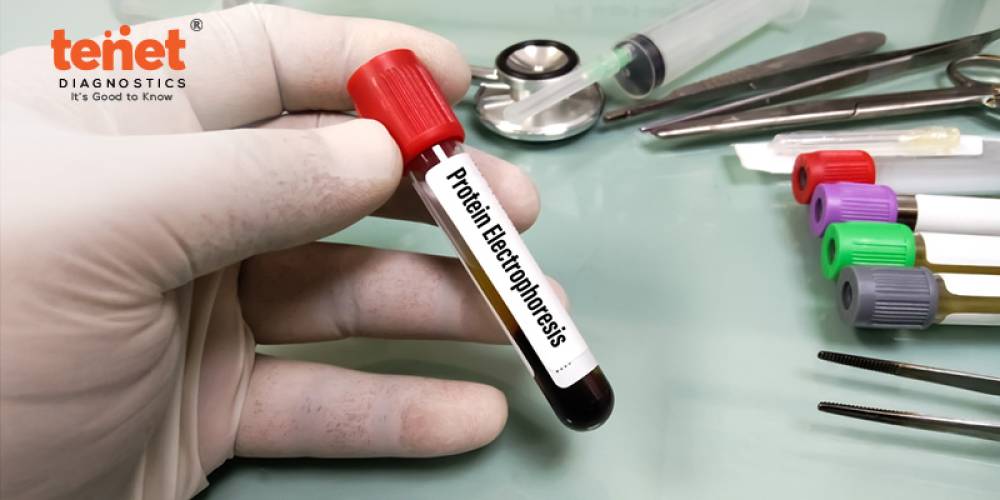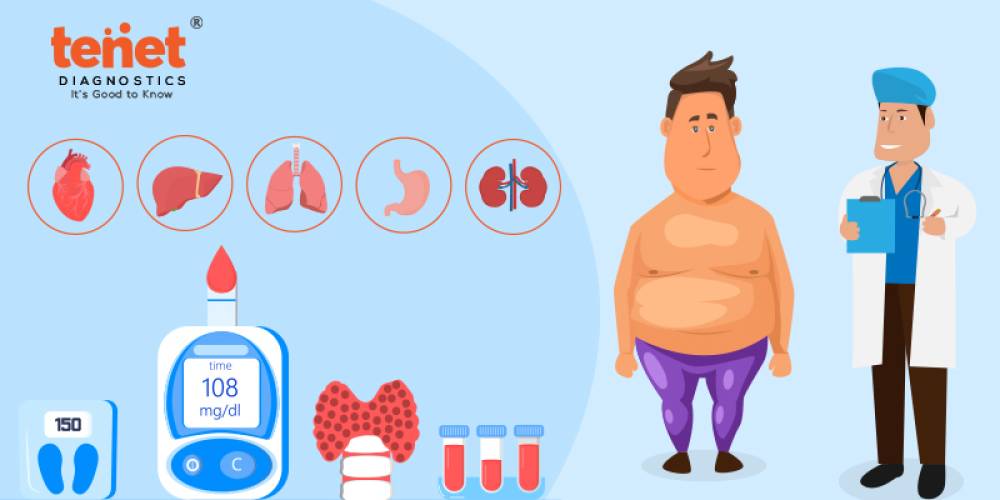The digestive enzymes that help metabolize carbohydrates are secreted by the pancreas, the gland behind the stomach. A mass of uncontrollably multiplying pancreatic cells is the result of pancreatic cancer. A few tests looking for cancer markers are used for the diagnosis or preliminary screening. Both cancer and normal cells create cancer indicators, also known as tumor markers, although the cancer cells produce these proteins in larger quantities. Tests to gauge the concentrations of tumor markers in blood, urine, and other bodily fluids make up the pancreatic marker profile. When combined with other tests, this profile test can help diagnose pancreatic cancer and determine the course of treatment.
What are pancreas tests?
Tests for the pancreas aid medical professionals in assessing your pancreas' condition. One crucial component of your digestive system is the pancreas. It causes the production of digestive enzymes that aid in the breakdown of fats and proteins in your diet, enabling your body to absorb the necessary nutrients. In addition, it releases hormones that control blood sugar and counteract stomach acid. An ineffective pancreas can cause a range of severe digestive issues that, if left untreated, get worse over time. Issues with the pancreas can also affect other organs and be a sign of other underlying medical disorders.
Types of pancreas tests:
Medical professionals look for issues with your pancreas using a variety of tests. Tests for pancreatic function seek specific molecules in your blood or stool that can indicate to your doctor how well your pancreas is functioning. Imaging tests are another tool used by providers to see your pancreas and detect any symptoms of illness. You can be screened for diseases like pancreatitis and pancreatic cancer with the aid of these tests.
Pancreas function tests:
This assesses the pancreas's chemical activity. These tests inform medical professionals as to whether your pancreas is generating the appropriate substances in the appropriate amounts at the appropriate times. Certain tests quantify the quantities of enzymes in your blood or stool. A other test uses a hormone to activate your pancreas and then records the molecules it makes in response. A specific test will be recommended by your provider based on your condition. Your results can point to pancreatic illness if they are abnormal.
Imaging tests:
It aids medical professionals in assessing your pancreas' health. They may search for anomalies such pancreatic cysts or gallstones, an abscess, or a tumor, as well as for symptoms of inflammation and edema. Images of a chronic disease may display long-term damage indicators like calcification and scarring. An MRI, an ultrasound, and a CT scan are examples of common imaging examinations.
What should I anticipate from my pancreas test?
Usually, the pancreatic test is straightforward. There may be some tests, nevertheless, that the patient may find painful. We refer to these exams as intrusive tests. An invasive test involves the use of an electronic device by the physician or other healthcare professional to examine your body.
Doctors therefore favor noninvasive testing. These exams hurt little or not at all. On the other hand, physicians may choose for intrusive operations if the case calls for drastic measures. It is crucial to understand the root cause of the issue and its sources regardless of the test.
What Are Pancreas Blood Tests Used for?
Noninvasive testing for pancreatitis includes blood tests. It implies that they cause no pain at all. After drawing blood from your vein, the physician tests it. They quickly complete the sample test after sending it to a pathologist. It is the initial test that physicians advise to assess how well your pancreas is working.
Moreover, blood testings are the best course of action if you are experiencing new pancreas disease symptoms. The level of enzymes in your pancreas is known to doctors. They check to see if your levels of pancreatic enzymes are normal or elevated. A high number of enzymes indicates the presence of pancreatitis.
What are the symptoms of Pancreatitis?
Once pancreatitis symptoms are identified, the doctor suggests a pancreas test. Currently, the pancreas' redness and inflammation are common indications of this illness. Usually, it occurs when the pancreas is harmed by your digestive enzyme.
The gland known as the pancreas aids in breaking down food into nutrients by delivering digestive enzymes to the intestine. It is also in charge of making hormones like insulin and glucagon. It is these hormones that regulate your blood sugar levels.
The following are a few signs of pancreatitis, both acute and chronic:
- Acute pancreatitis symptoms include inflammation
- Short-term pain
- Sometimes fatal
- Chronic pancreatitis symptoms include persistent inflammation that flares up once per hour.
- Causes irreversible harm to your pancreas
- Your pancreatic tissues are scarred.
- The pancreas ceases producing insulin and digesting enzymes.
Some signs and symptoms of pancreatitis are as follows:
- Severe chest and stomach aches
- Experiencing nausea
- Throwing up
- Heart rate in tempo
- Elevated fever
- Bloating in the upper abdomen
- Fluid accumulation
- Low BP
- Yellow eyes and skin
These symptoms could be confused with those of other medical disorders. But if you notice any of these symptoms, make sure to see your doctor.
What Do Results of an Abnormal Pancreas Blood Test Indicate?
Your blood's levels of lipase and amylase can both tell you how well your pancreas is functioning. Your pancreas test results indicate that you have pancreatitis or pancreatic dysfunction if the amylase and lipase levels are high. Acute pancreatitis is indicated by three times higher levels of lipase and amylase than normal.
Your blood enzyme level is displayed by the Pancreatitis blood test levels. These can either be lipase or amylase. Based on the findings, your healthcare practitioner will get in touch with you for additional care or surgery.
In adults under 60, the typical range for the pancreas blood test is 10 to 140 U/L. The typical range is 24 to 151 U/L for those 60 years of age and older. Your risk of developing acute pancreatitis increases with lipase levels. You may also have pancreatitis or pancreatic cancer if the enzyme level is three to ten times higher than normal.
Conclusion:
Pancreatitis is a fatal condition. Over time, it may potentially cause injury to your other organs. As a result, scheduling a pancreatic blood test as soon as possible is imperative. To get a blood test, visit the top diagnostic facility.
The results of your pancreatic test are sent to you in a day. The fact that they carry out several tests is the nicest aspect. Tenet Diagnostics offers everything from imaging testing to blood, stool, and urine tests.







